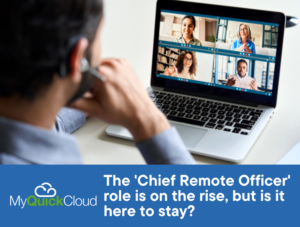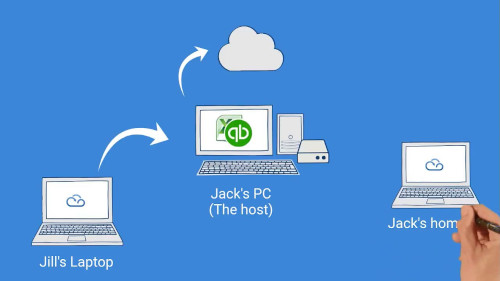A number of companies have announced their intentions to transition to a remote-first environment, including Dropbox and Vista. MyQuickCloud has seen a huge rise in its small business and tech users due to the changing way people are working and changing their business model.
The process of cancelling office leases, setting up new Slack channels, and scheduling Zoom happy hours hasn’t been as simple for many.
Embedding remote and hybrid working is still a work in progress for most companies, from training managers to establishing protocols around technology and time zones.
To make remote work work, those committed to the long haul have created a dedicated leadership position.
Companies are increasingly investing in remote managers. T3 found that the proportion of technology companies with a designated leader for remote work increased from 2 percent in August 2020 to 15 percent in February 2021.
Remote working leadership has been hired by companies such as Facebook, Okta, LinkedIn, LogMeIn, among others. Technology is not the only sector where the role is expanding. This role has been created by companies like Unilever, Nationwide, Procter & Gamble, and Deloitte.
It doesn’t matter if businesses don’t operate exclusively in the knowledge industry, or if they are transitioning to hybrid models rather than exclusively remote, leaders are needed to shape this new way of working.
To some, the job title might sound abstract, but for companies, it illustrates the fact that a good remote work experience doesn’t just happen by couriering a laptop and desk to someone’s home.
Despite the job title’s intangibility, it demonstrates how companies understand how to make remote working a successful experience, not just couriering laptops and desks to people’s houses and expecting them to manage things themselves.
A new role is being pioneered
A former journalist and communications executive was appointed as the company’s head of remote in 2019, Darren Murph. As it expanded to 450 employees by 2019, Murph was hired as “culture curator” to lead the company’s remote-first strategy.
Murph’s title was upgraded to “head of remote” in 2015 at a GitLab remote work event co-hosted in San Francisco, when the remote work role was still in its infancy.
Now, the role includes creating processes for mastering remote workflows and tools, as well as developing a company-wide documentation strategy that is appropriate for remote work, giving purpose to in-person meetings, and reevaluating company values when necessary, as well as building a culture and improving onboarding and manager training.
Through interviews, webinars, case studies, and podcasts, Murph has become an advocate for GitLab’s remote culture and initiatives.
He was included in the 2022 Remote Influencer Report, published by international HR and payroll platform Remote, as one of the most influential people in the space.
GitLab recently promoted him to the Chief of Staff position, giving him the CEO’s backing for initiatives like TeamOps, which can be used in any work environment – remote, hybrid, or in-office.
Does this hire provide a competitive edge or is it unnecessary?
Companies can demonstrate innovation, inclusion, and willingness to invest in their employees when they hire dedicated remote leaders, argues Murph.
The demand for remote and hybrid work continues to grow, despite negative statements from business leaders such as Elon Musk. A head of remote work will be crucial for ensuring remote workplaces are cohesive and equal.
Distribute Consulting founder Laurel Farrer agrees.
“The real value of a permanent head of remote is to strategise and monitor the impact of remote work on the company. This might be how workplace flexibility is influencing productivity rates, or how products and marketing should be updated for a work-from-home market,” explained Farrer.
“New tools, legislation, and industry regulations will be rolling out at an incredible rate and will be difficult to monitor without feeling overwhelmed”.
This article first appeared in Euro News.





